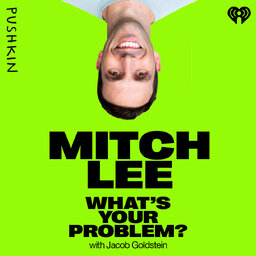Can AI Tutors Help Kids Learn? Khan Academy Thinks So
Sal Khan is the founder and CEO of Khan Academy. Sal’s problem is this: How do you design an AI that can give students the kind of benefits they’d get from working with a human tutor?
Earlier this year, Khan Academy launched Khanmigo, an AI tutor built on top of GPT4. The idea is to use AI to give more kids access to one-on-one tutoring, and help human teachers with their work as well.
 What's Your Problem?
What's Your Problem?


